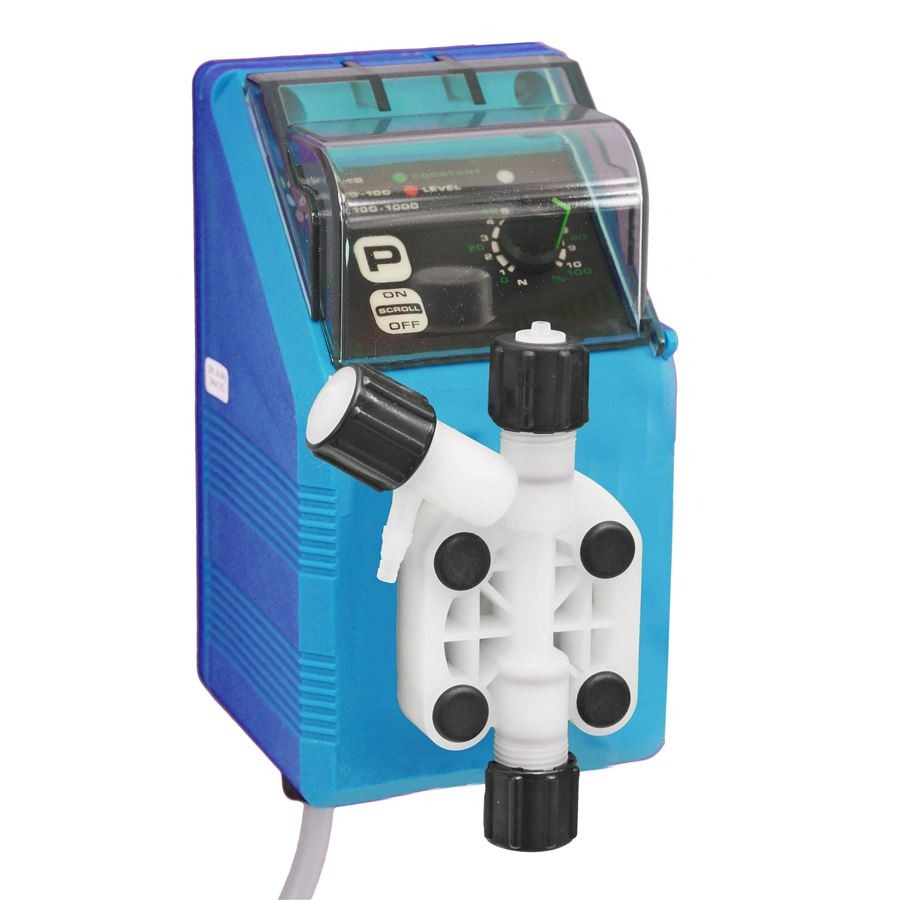A proportional dosing pump
A proportional dosing pump is a device used for accurate dosing of liquids with a certain proportion. This means that the amount of output fluid is controlled based on a certain ratio to the amount of input fluid. These pumps are structurally designed to ensure consistent and accurate dosing of liquids, which is crucial in a variety of applications where precise proportions or concentrations of substances must be maintained.

Examples of the use of proportional metering pumps include:
Water and wastewater treatment plants: In these applications, proportional metering pumps are used to add chemicals such as disinfectants or treatment agents to the water to maintain optimal chemical parameters.
Industry: In industrial processes, proportional metering pumps are used to add various chemicals to products or processes to achieve well-defined properties or changes.
Healthcare: In the healthcare field, proportional dosing pumps can be used to dispense drugs or various liquids to patients with precisely determined doses.
Food industry: In the food industry, proportional dosing pumps are used to add additives, colorants and flavor enhancers with precisely defined ratios.
Research and Laboratory Applications: In laboratory and research applications, proportional dosing pumps are used to dispense various reagents or solvents at precisely specified concentrations.
These pumps are essential in areas where precise amounts of liquids need to be dispensed with respect to a specified ratio or concentration. Thanks to their precise management and dosing, they can significantly contribute to ensuring the quality of products, processes and applications.
